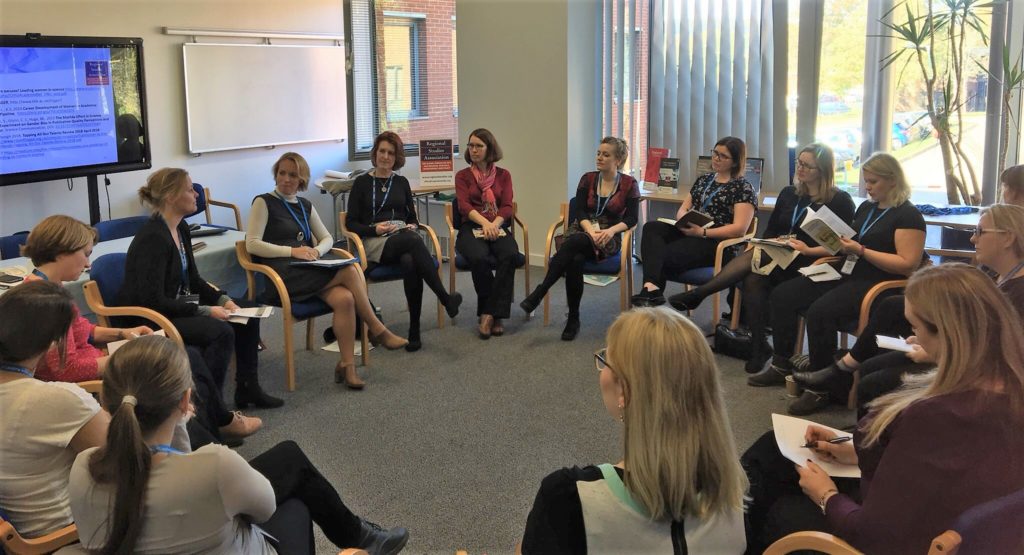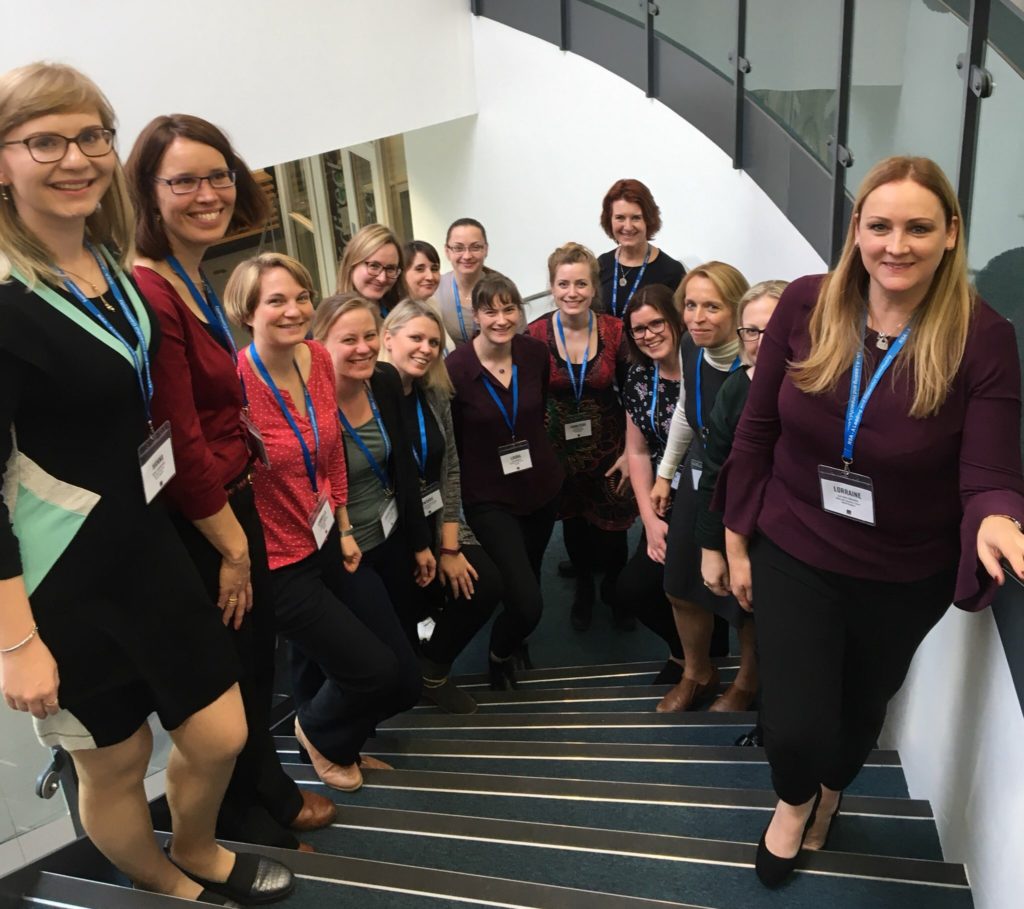By Franziska Sielker (University of Cambridge, UK) and Camilla Chlebna (University of Oldenburg, Germany)
A group of circa 20 Early and Mid-Career female scholars met on 24th October in Brighton at the premises of RSA headquarters for the inaugural Networking Workshop for Women in Regional Studies and Regional Science. The aim of this RSA member-led event was to get to know each other, with room for discussions, opportunities to exchange experiences and in-depth conversations about dealing with day-to-day academic life challenges.

The goal beyond the formation of this yet informal group of the ‘Early and Mid-Career Women in Regional Studies and Regional Science’ is to establish a platform for network building and to offer opportunities to have conversations with established female researchers in an informal setting. Towards the end of their doctoral studies, all early-career scholars face difficult decisions, including whether or not to stay in academia. This post PhD period can also bring up challenges and uncertainties around roles, locations, contracts and funding. Very often this time of life also coincides with personal changes involving relationships, family planning, the buying of first homes, moving abroad and increased levels of travel. Mid-career scholars are having to face new challenges in their academic career when they start a faculty position, e.g. a lectureship or an assistant professorship. In this period, each scholar must find strategies to balance the different responsibilities in teaching, administration and research.
Academics in this transition often make unconscious decisions about their style of leadership or teaching. An important element in dealing with these uncertainties and in taking conscious decisions is access to a strong network, the chance to plan and discuss career opportunities, and the opportunity to discuss these issues with role models, mentors and coaches. For this reason, members of RSA aim to develop a network designed for female early and mid-career researchers in the fields of regional studies and regional science. We hope to grow a strong and supportive network, where individuals will benefit from contacts made and also from opportunities for career advice and conversations with more experienced colleagues, as well as with peers at network meetings.
This member-led initiative resonates well with the RSA’s continued effort and success in supporting its female scholars as part of its development strategy. The organisation strives for equal representation on panels at RSA events where possible as well as on the governing board. A recent survey of the RSA’s own journals found that female scholarship was represented roughly according to the total share of female membership. Whilst females are well represented amongst the early and mid career cohorts, they are significantly less well represented amongst more senior members. The RSA understands that amongst other reasons there are particular challenges which female early and mid-career scholars have to face which can lead to their dropping out of academia at this stage. Supporting the Women’s Network in Regional Studies and Regional Sciences is part of the organisation’s effort to better understand these challenges and to better support its female members through these career stages.
On the day, we opened with a speed-dating carousel, which facilitated understanding each other’s career stages as well as more personal aspects such as music preferences or holiday destinations. Helen Lawton-Smith presented the results of the TRIGGER project on changing institutional culture regarding female representation and support. Sally Hardy, CEO of RSA, presented the RSA’s survey on gender and peer review in its own journals. This was followed by an interesting conversation with Sabine Zillmer from Spatial Foresight, who shared experiences from her own career, talking about good and bad choices she made and giving recommendations to early career colleagues. The workshop sought for an open, informal and collaborative atmosphere, not only allowing for group conversations, but also leaving time for each and every one to network. It was a pleasure to see the vivid communications in the sessions and the breaks, which has very much encouraged us to develop a further event.

The next instance of this initiative is foreseen back-to-back with the RSA Annual Conference in Santiago de Compostela on Saturday 8th June 2019. We welcome all interested female colleagues, and would be pleased to receive suggestions and ideas for the workshop. Based on initial feedback, we aim to continue providing a forum for conversations around work-life balance and career development bringing in external expertise. Following suggestions gathered at our first session, we expect to target aspects of career development, soft skills (such as assertiveness) and publishing. However, this is intended to be an open opportunity aimed at all of us female members, and we very much welcome any initiatives or suggestions. Please do not hesitate to contact us and become involved! Get in touch!
If you are interested in this initiative you can reach Franziska Sielker via fs421@cam.ac.uk and Camilla Clebna via camilla.chlebna@uol.de



